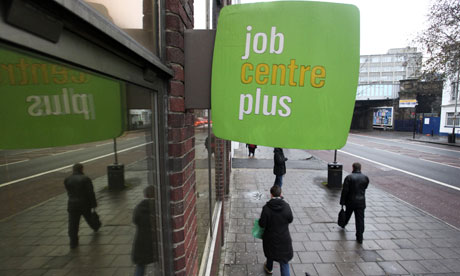Nearly 1.2 million people may be sanctioned if they do not obtain extra work, increase their hours or find a higher paying job
Patrick Wintour, political editor

Some claimaints will lose their benefits if they do not find extra work - even if there is none available where they live. Photograph: Rex Features
Nearly 1.2 million working adults will for the first time next year face losing some of their benefits if they do not comply with new state requirements to work longer hours, find an additional job or seek higher wages, it has emerged.
The aim is to increase the incentives to work but it means that people will lose money if they don't find extra work, even if there is none available where they live.
There are currently 1.4 million people working part-time because they are unable to find full-time work – compared to 500,000 in 2004.
The claim that 1.2 million working adults will be brought under the oversight of the department of work and pensions sanctions regime is made by the Resolution Foundation thinktank, and is based on figures supplied by the DWP for the first time.
The foundation suggests about 700,000 single people will be affected, as well as 500,000 who are living as part of a couple.
The conditions will be set on payments to many working claimants who earn less than the weekly equivalent of the minimum wage – £212.80p for a single person.
The Resolution Foundation claimed on Wednesday night that the work and pensions secretary Iain Duncan Smith was moving into unchartered territory and questioned whether DWP jobcentre advisers have the capacity to cope with double the number of claimants subjected to potential sanctions.
To counter the clear financial incentives for low-hours work in the new system universal credit introduces, for the first time, a bolstered system of personalised conditionality, including directed mandatory activity to help people obtain and prepare for work.
Claimants will be expected to meet a new, higher conditionality earnings threshold, equivalent to 35 hour week at national minimum rates through a combination of measures. These can include: increasing their hours or their hourly wage with their current employer, finding one or more additional jobs alongside their existing employment or finding a new job with a higher income.
The foundation warns that "with little over a year until implementation it is of concern that little has been said about how a fair, consistent and adequately resourced conditionality system for working claimants will be implemented. It also questions "whether an extension of conditionality to working claimants can function in the current context of a chronically weak labour market in which millions of people want to work more hours, but are unable to do so".
Guardian